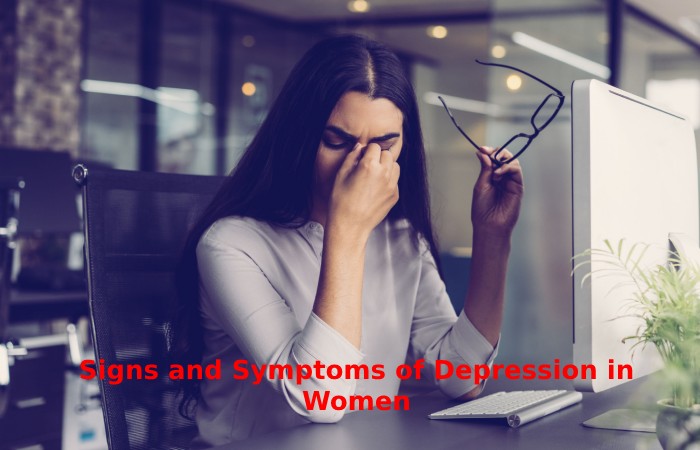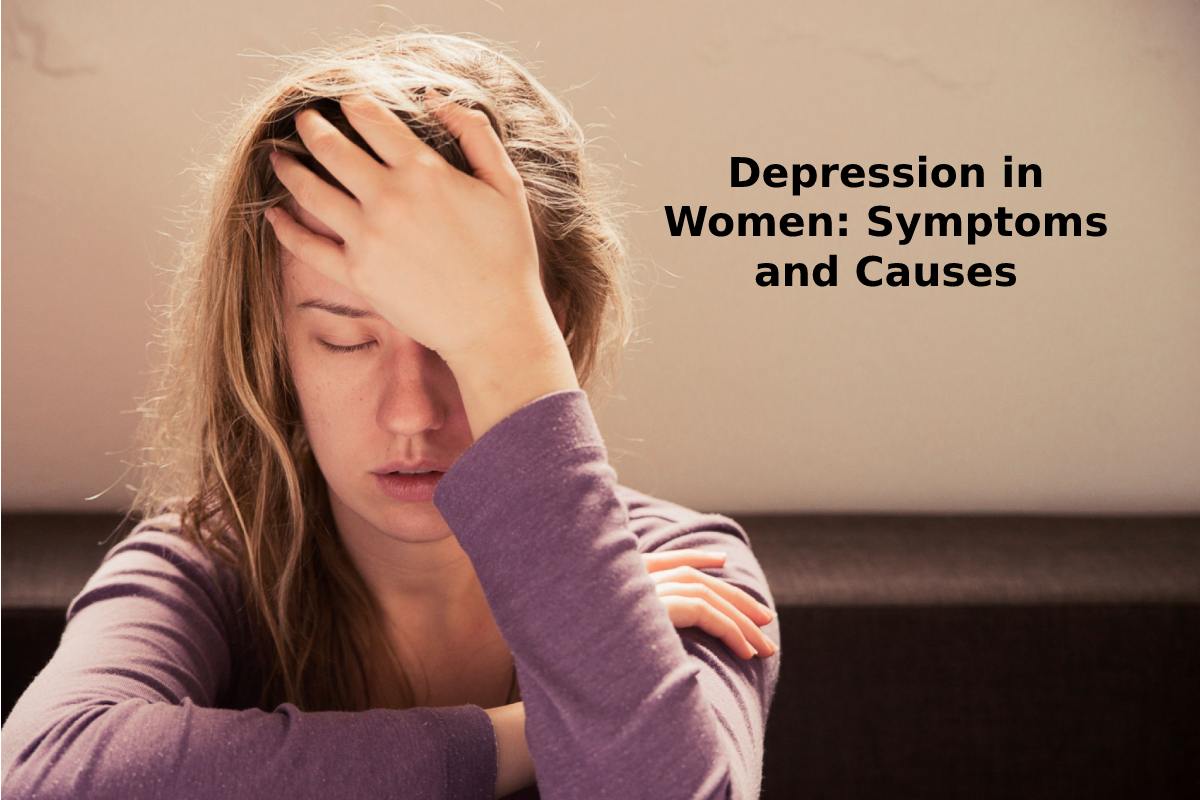Table of Contents
Introduction
Depression in women: Depression may affect many aspects of a woman’s life, including her physical health, social life, relationships, profession, and self-worth, and is exacerbated by reproductive hormones, societal expectations, and the particular feminine reaction to stress. However, it is essential to understand that you are not alone. Women are about twice as likely as males to suffer from depression, but the condition is curable, and there are several ways to feel better.
Signs and Symptoms of Depression in Women

Women’s depression symptoms range from mild to severe (major depression) based on their influence on their capacity to function. Typical symptoms of depression include:
- Feelings of powerlessness and despair You believe that nothing will ever improve and that there is nothing you can do to change your condition.
- You no longer care about hobbies, diversions, and formerly enjoyed social activities.
- Changes in appetite can result in considerable weight loss or increase.
- Alterations to your sleep routine.
- I was feeling irritated, anxious, and restless.
- Feeling exhausted, lethargic, and depleted of energy.
- Difficulty focusing, making judgments, and remembering.
- A rise in aches and pains, including headaches, cramps, breast tenderness, and bloating.
- Suicidal ideation
Causes of Depression in Women
Women report depression at far greater rates than males. Several social, biological, and hormonal elements unique to women may explain this gender gap.
Premenstrual Issues
Premenstrual syndrome (PMS) symptoms, such as bloating, irritability, exhaustion, and emotional reactivity, can be caused by hormonal imbalances throughout the menstrual cycle. Certain women may be diagnose with premenstrual dysphoric disorder if their symptoms are severe and incapacitating (PMDD). PMDD is characterized by extreme sadness, irritability, and other mood abnormalities that begin 10 to 14 days before your period and subside a few days after the onset.
Obstetrics and Infertility
The many hormonal changes during pregnancy can contribute to the development of depression, especially in women who are already at risk. In addition, other pregnancy-related concerns, such as loss, undesired pregnancy, and infertility, may also contribute to depression.
Postpartum Depression
It is usual for new moms to suffer from “baby blues.” It is a typical response that often subsides in a few weeks. However, some women suffer from persistent, severe depression. This disorder is known as postpartum depression, and it is believe to be at least somewhat driven by hormone imbalances.
Menopause and Perimenopause
During perimenopause, the time preceding menopause in which reproductive hormones change quickly, there may be an increased risk of depression in women. In addition, women with a history of depression are more likely to experience depression throughout menopause.
The Physiological Response of Females to Stress
Women create more stress hormones than males, and the female sex hormone progesterone prevents the stress hormone system from shutting down, as it would in men. As a result, it can increase a woman’s susceptibility to stress-induced depression.
Depression in adolescence may be exacerbate by increased body image difficulties that females experience during puberty.
Thyroid Issues
Since hypothyroidism can induce depression, a physician should always rule out this condition.
Health Issues
Chronic sickness, injury, or handicap, as well as crash dieting and quitting smoking, can cause sadness in women.
Conclusion
Depression is a severe and communal condition that negatively affects how you feel, think, and act. Fortunately, it is also treatable. Depression causes moods of unhappiness and loss of attention in actions you used to enjoy. It can lead to various emotional and physical problems and affect your functioning at work and home.
